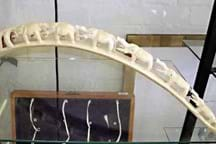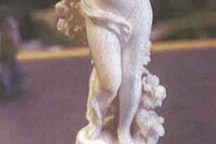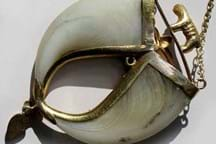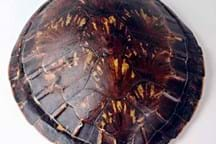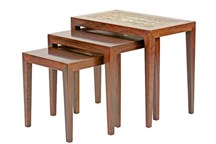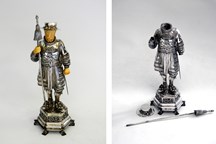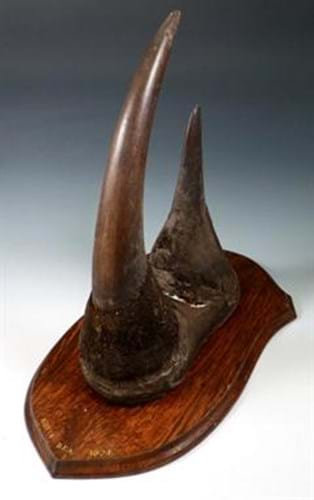
General Information
The United Nations Convention on International Trade in Endangered Species of Wild Flora and Fauna (CITES) controls "parts and derivatives" of endangered species as well as live specimens.
This means that elephant ivory, rhinoceros horn, tortoiseshell, some taxidermy items and even furniture fashioned from some tropical hardwoods are all controlled.
Many antiques, however, qualify under an exemption from the controls known as the "worked item" derogation. This states that an item shall be exempt from normal sales controls if it was acquired prior to March 1947 and has been significantly altered from its natural raw state for jewellery, adornment, art, utility or musical instrument. Most taxidermy qualifies under the derogation.
The cut-off date of 1947 is increasingly relevant as post-War design has become mainstream: some timbers used in mid-century furniture are now on the most endangered list.
In the UK it has long been unlawful to sell 'unworked' ivory specimens of any date (e.g. a whole, uncarved elephant, narwhal or walrus tusk). However, in April 2018, the government announced in that it would introduce an ivory ban with only a small number of exemptions for certain items containing ivory. The rules in this area will thus change significantly once the new law is brought in. However for now trade in pre-1947 ‘worked’ items continues as before.
For more information, read ATG's guide to the incoming ivory ban in the UK.
A handy guide to what is and isn't permitted under the current rules can be downloaded here:
Snooker Ball
CITES provides the example of an ivory snooker ball made in 1900. As it was significantly altered from its original state (a raw tusk) for the purpose of utility many years before the cut-off date, it could be sold within the EU without the need for a CITES certificate.
The snooker ball would still come within the derogation if it had been re-carved, for example to make a walking stick handle, before March 1947. However, if the re-carving had been done after that date, it would be outside the derogation and need a CITES certificate from the department of Animal Health's Wildlife Licensing and Registration Service.
What constitutes a ‘worked item’ can be open to interpretation. In May 2013, significant changes were introduced following new guidance from the European Commission. It meant that many more items now require licences (a so-called Article 10 certificate) from the Animal and Plant Health Agency (APHA) before they can be sold, while ‘stricter measures’ governing the sale of unworked elephant ivory, rhinoceros horn and tiger parts mean that trade in some of these items has effectively been banned.
Brexit has not changed any of the obligations regarding Article 10 sales licenses.
The cut off date of March 3, 1947 is still in force and (since 2019) it has been necessary to publish the licence number of the item for sale in your catalogues (both hard copy and online). Currently an Article 10 certificate costs £31.
Brexit
Prior to Brexit, the shipment of items made from endangered species within the EU was simple. As there was free movement throughout the Member States, it required little paperwork and no CITES re-export/export/import documentation.
Post Brexit, (from January 1, 2021), this has changed. When shipping to and from EU countries (plus Northern Ireland, the Channel Islands and the Isle of Man) you will now need to use designated entry and exit points (an updated list of ports that can handle CITES paperwork can be found on the Gov.uk website) and supply new documentation including two CITES permits (Import and Re-Export permits).
UK CITES permits are available from APHA (Animal & Plant Health Agency), Horizon House, Deanery Road, Bristol BS1 5AH. Tel 0117 373 3700.
Currently a re-export certificate for animal species costs £37. Re-export permits for plant species (such as Brazilian rosewood) are priced at £59. EU buyers will need to contact their own CITES Authority to arrange any Import permits.
Rhino Horn
There are strict rules surrounding the sale and export of rhino horn but it is still legal to sell ‘worked’ items acquired or prepared prior to 1947.
Providing they were ‘worked’ before 1947, taxidermy rhino heads can still be sold, as can items such as libation cups, beads, dagger handles and knobkerries.
What cannot be sold regardless of age are uncarved rhino horns including those mounted in silver as inkwells, clocks etc, or those mounted as big game trophies on or off shields.
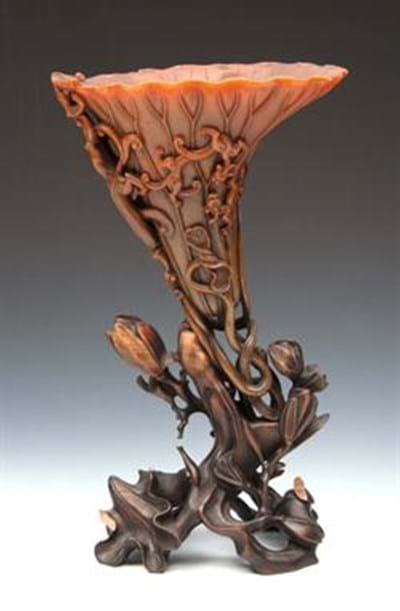
A Qing dynasty rhinoceros horn libation cup that sold for £210,000 at auction in 2011. Providing they were ‘worked’ before 1947, examples like this can still legitimately be sold.
Restrictions surrounding the export of rhino horn from countries within the European Union were further tightened on March 12, 2012 to include all items, whether or not they have been 'worked'.
In practice this means that, while it is still legal to sell rhino horn works of art in the UK, they will not always be granted licences to be sent overseas to the increasingly affluent nations where such things are most highly prized.

